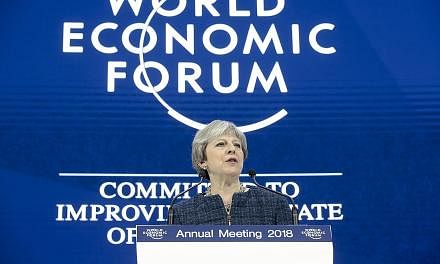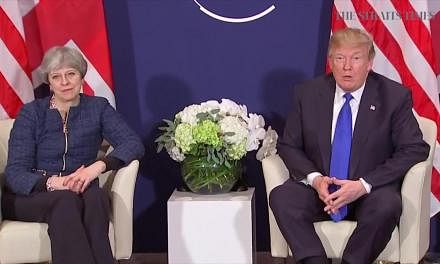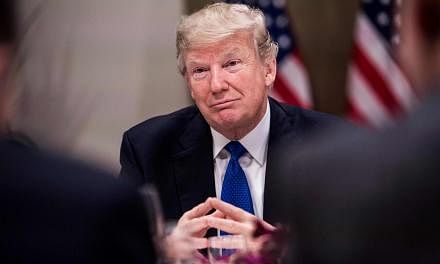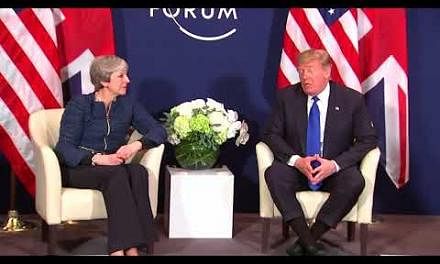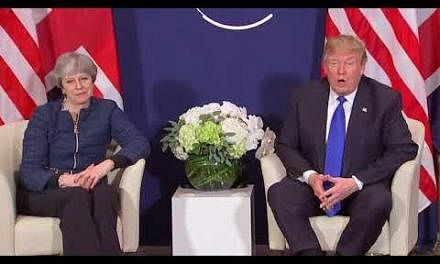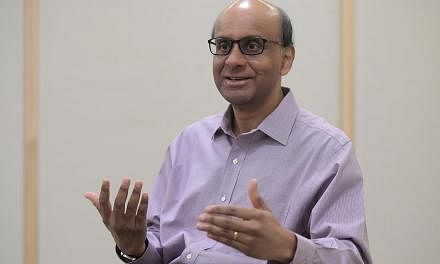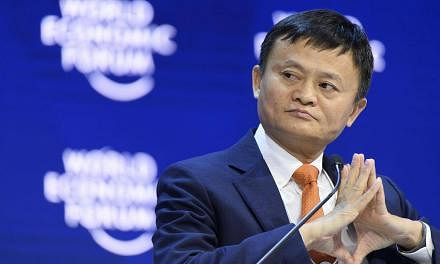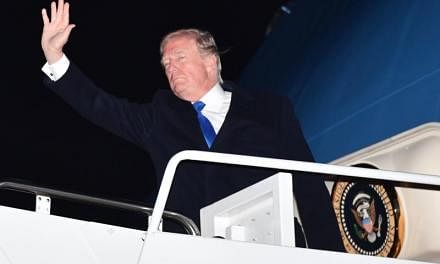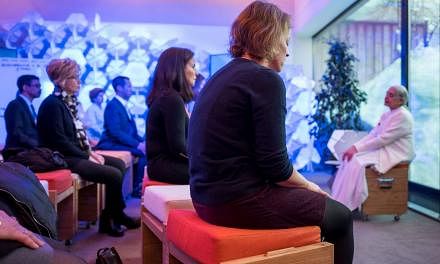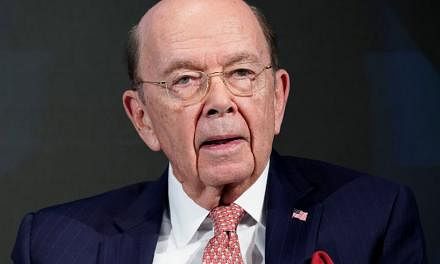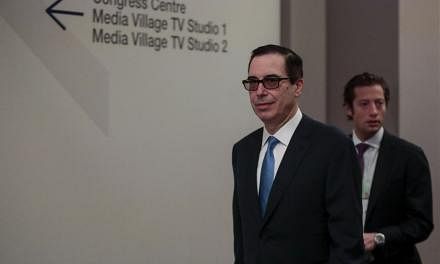DAVOS, Switzerland (AFP) - Seated in suits and ties with snowy treetops glistening through the window, visitors to the Davos business summit listen to meditation leader Jayanti Kirpalani's soft voice guiding them towards inner peace.
While US President Donald Trump heads to Davos having fended off questions about his mental fitness for office, others are making a daily task of tending to their psychological well-being, combating stress and overwork.
"Ten years ago, doing morning meditation sessions at Davos would have been unthinkable. Now it has become fashionable," said Matthieu Ricard, a French Buddhist monk who took part in the summit.
"So you have to be careful," he told Agence France-Presse. "You have to keep a minimum of authenticity to it." Beyond prosperity and justice, for many delegates the World Economic Forum's stated mission of "improving the state of the world" starts with health - and increasingly mental health, the subject of several panel discussions at Davos.
Indian Prime Minister Narendra Modi brought two yoga gurus in his delegation to Davos. Addressing the forum on Tuesday, Modi advised delegates that yoga and Ayurvedic medicine can "give us physical, mental and spiritual health and balance".
Meditation and "mindfulness" training have taken off in the corporate world in recent years.
Ricard said he has visited big companies such as Google which have started encouraging their staff to cultivate mindfulness. That is defined as a capacity for attentiveness and calm that is aided by meditation practice - even for just a few minutes or seconds at a time.
"There is very strong interest in it, because people realise that in businesses there is a problem of burnout and a deterioration in human relations" caused by stress at work, the monk told AFP.
Paying mind
According to data presented at the WEF, 320 million people suffer from depression worldwide. In Britain, the Mindfulness Initiative, a policy institute, says mental health problems account for 70 million sick days a year.
Based on various scientific studies, the US Department of Health and Britain's National Health Service are among the bodies that recognise mindfulness as a potential way to prevent depression.
The British Parliament released a report in 2015 with recommendations for expanding mindfulness in the workplace and beyond.
"It's gone from being ignored in the political sphere to being right at the top of the political agenda. People are doing great work in the workplace to dispel the stigma," said Jamie Bristow, director of the Mindfulness Initiative.
"Mindfulness training helps people right across the curve of well-being, from depression and anxiety to those who are really flourishing," he said.
"This is why it's really taken off in Silicon Valley, where people aspire to be on top of their game and also to be happy."
The Mindfulness Initiative cites studies estimating that companies and institutions which improve well-being through mindfulness could save hundreds of thousands of dollars a year.
"If you want to be cynical about it, it is cheap - that's a great thing for companies and corporations to say that they have," said Dean Burnett, a British neuroscientist and author.
"If it's handled in a ham-fisted way, it's going to backfire. Managers may have 100 per cent good intentions but the employees may not necessarily trust them."
Minding Trump
Parham Vassaiely, 32, is a senior manager working on developing driverless vehicles for Jaguar Land Rover in Britain.
He meditates for a few minutes to start the day and for shorter periods during work, to clear his mind before attending meetings or making decisions.
"After the practice I feel more focused and clearer about the tasks ahead," he told AFP.
"I am able to recognise and analyse situations quicker than I would without doing the practice." He says he has also helped organise training in mindfulness exercises for 3,000 other employees in the Indian-owned company.
Dressed in white robes, Kirpalani ends her meditation with a broad smile and the Davos delegates disperse quietly.
Trump is not expected to join one of her sessions.
But could mindfulness help the abrasive US president?
"That's a difficult case," said Ricard, the Buddhist monk, asked what he would say to Trump given the chance.
People like the "narcissistic" Trump "are so focused on themselves that they do not listen".







